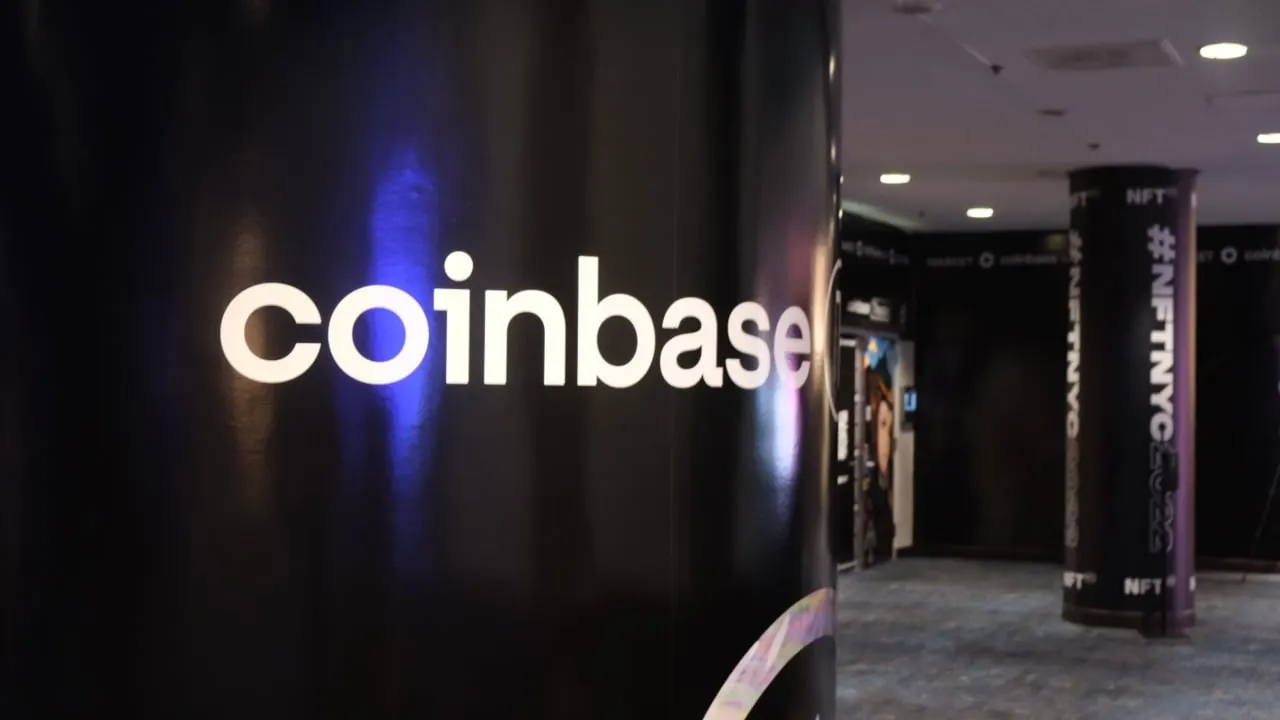The Bitcoin ETF race is on, and Wall Street behemoths like BlackRock and Fidelity are now battling for the title of first to offer a spot market product. But the winner will end up sharing that title with the partner that helps get it over the finish line.
That company could be Coinbase.
When BlackRock announced it was stepping into the ring with its own spot Bitcoin ETF offering on June 15, it did so together with Coinbase. The $8.5 trillion asset manager designated the San Francisco-based crypto exchange as custodian for the fund’s Bitcoin and later revised its filing to say Coinbase would also provide surveillance-sharing services, which allows the two to share information about trading, clearing activity, and customer identification to reduce the risks of market manipulation.
"Coinbase will likely be the go-to exchange in this regard," Bob Ras, co-founder of the asset-tokenization firm Sologenic, told Decrypt. "Clearly, the big players regard Coinbase as a legitimate and critically important institution here."
BlackRock wasn’t the only Bitcoin ETF hopeful to turn to Coinbase to help shepherd its application with the SEC along. All five of the spot ETF Bitcoin applicants working with the Chicago Board of Exchange—Fidelity, VanEck, Ark Invest’s 21Shares, Valkyrie, and Invesco—submitted revised applications that named Coinbase their surveillance partner of choice.
This parade of partnerships comes not long after the Securities and Exchange Commission hit Coinbase with a lawsuit accusing it of operating an unregistered securities exchange and dealing in unregistered securities through its staking service Coinbase Earn. The company rejects the charges, but the lawsuit has left a dark cloud over its head.
Yet with BlackRock and others seemingly shrugging off the SEC's charges, the vote of confidence appears to be validating Coinbase's approach to doing business. Several industry insiders told Decrypt that it was at best unclear what impact the SEC’s lawsuit would have on its recent deals, but expressed doubt that the allegations—even if they’re found to be credible—would affect Coinbase’s ability to help launch an ETF.
Joshua Frank, CEO of The Tie, an information service company for digital assets, said that Coinbase took "a lot of shit" for exercising a more cautious way of conducting business than some of its peers in recent years. The ETF deals, he said, show that Coinbase's more deliberate approach is paying off.
“I have 200 institutional clients, many in [traditional finance], who I speak to everyday, and every single institution I've ever spoken to is comfortable with Coinbase as a partner," Frank told Decrypt.
This confidence has also been good for Coinbase's stock value. On the heels of the BlackRock filing, Coinbase’s stock began to steadily climb from $54 a share before surging ahead to $107 on July 13 after a federal judge ruled favorably against the SEC in its lawsuit against Ripple, finding that its XRP token was not a security except in certain transactions.
The stock last closed at about $98 a share at the time of writing, still above its place from when the SEC sued Coinbase on June 6.
This trust factor is also important at a time when more TradFi firms are showing an interest in wading deeper into crypto. Jeffrey Blockinger, the chief legal counsel at decentralized exchange Vertex Protocol, said that contacts in the world of traditional finance have expressed to him an interest in Bitcoin, but often have "no interest" in figuring out the technical side of handling their digital assets.
This is especially relevant given the collapse of cryptocurrency exchange FTX last year. Authorities allege that the company founded by Sam Bankman-Fried, who now faces several criminal charges, mixed customer and corporate funds. The SEC alleged in a lawsuit filed on June 5 against Binance, the largest crypto exchange in the world by volume, that it too may be commingling customer funds.
For its part, Coinbase has said that it works to keep the separation of client and corporate funds intact. In an earlier interview with Decrypt, Coinbase Chief Legal Officer Paul Grewal endorsed regulations in crypto to formalize that boundary.
Blockinger said it was unlikely that BlackRock, Fidelity, or the other TradFi giants with their large due diligence teams would be inking deals with Coinbase if they felt their clients’ assets would be at risk. "They have a lot to lose," Blockinger told Decrypt. "I think that they've gotten themselves comfortable with this institution that they feel they can do business with.”
It's worth noting, however, that BlackRock invested $24 million in FTX. And for all the enthusiasm felt towards Coinbase between the Ripple decision and ETF deals, the threat of the SEC still looms large in the shadow of the company's recent rally.
Much of the lift behind Coinbase's stock came from the rally in Bitcoin's price that followed the ETF deals though it has cooled recently. In an analysis included in BlackRock’s ETF filing, Nasdaq estimates that 56% of the $129 billion in U.S.-based Bitcoin trading took place on Coinbase, where Bitcoin to U.S. dollar transactions are its highest volume trading pair, according to CoinGecko.
Despite the spike in optimism from Coinbase after the Ripple decision, analysts at Berenberg Capital Markets caution that the celebration may be premature, and that the SEC’s case posed fundamental problems for it.
Unlike Ripple, Coinbase is being sued for offering unregistered securities through its staking service, something Coinbase is refuting. However, Berenberg analysts caution that the service, which lets users earn interest from Coinbase by staking their tokens, may fall outside the parameters set by the Ripple ruling.
In a July 17 research note, the Berenberg analysts warn that if the SEC or state regulators succeed in curtailing Coinbase's staking activities, it has the capacity to cut deeply into the company’s financial condition by hitting the trading volumes it relies on so much.
Frank from The Tie offered a broader warning for the industry. Though he praised Coinbase for running a trustworthy business, Frank noted that the market’s reliance on Coinbase to fulfill so many roles —from crypto custodian to exchange— is an unhealthy place to be. Pointing to the meltdown that followed FTX's collapse, Frank said it would be healthier for the market to grow more players than rely so heavily on any single firm.
"I think at the end of the day, we need more Coinbases," Frank told Decrypt. "We need more if we want institutions to come on and ramp up for crypto. One isn't sufficient."

